Are you ready to uncover the vast world of Azure Services? Look no further! In this exciting article, we will provide you with an in-depth overview of Azure Services, allowing you to grasp the essence of this powerful cloud computing platform. From understanding its capabilities to exploring its comprehensive range of services, you will gain a clear understanding of how Azure Services can transform your business operations. So, let’s embark on this adventure together and discover the endless possibilities that Azure Services have to offer!
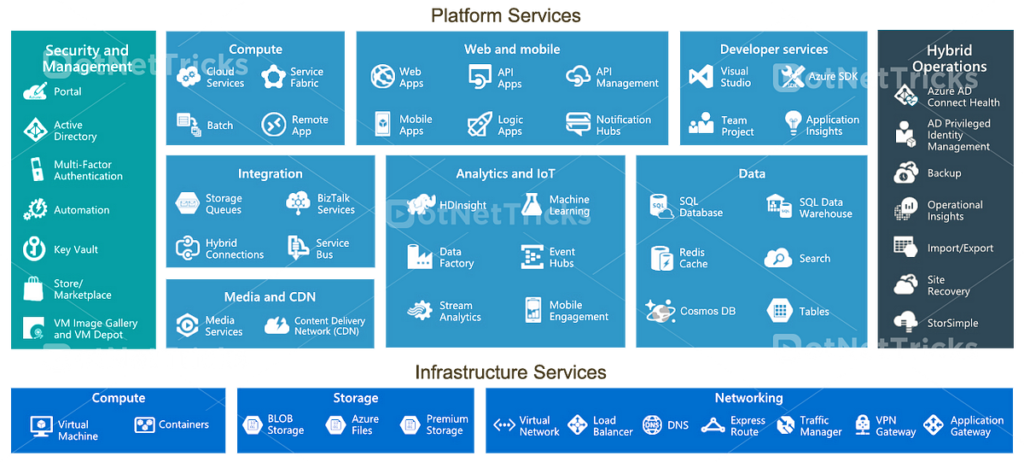
What is Azure?
Introduction to Azure
Azure is a comprehensive cloud computing platform provided by Microsoft. It offers a wide range of services and capabilities that enable businesses and organizations to build, deploy, and manage applications and services on a global scale. Azure provides a flexible and scalable infrastructure that allows you to quickly adapt to changing business needs and market demands. With Azure, you can harness the power of the cloud to accelerate innovation, improve operational efficiency, and drive business growth.
Benefits of using Azure
There are several key benefits to using Azure for your cloud computing needs. First and foremost, Azure offers unparalleled scalability. Whether you need to deploy a single virtual machine or provision thousands of servers, Azure can handle it with ease. This scalability also extends to storage, allowing you to store and retrieve massive amounts of data quickly and efficiently.
Another major benefit of Azure is its global presence. With data centers located around the world, Azure can ensure low-latency and high-performance access to your applications and services, regardless of where your users are located. This global reach also enables you to easily expand your business to new markets and serve customers in new regions.
Azure also offers a high level of reliability and fault tolerance. With built-in redundancy and automatic backups, your data and applications are protected against hardware failures or unforeseen disasters. This ensures that your business can continue to operate smoothly even in the face of disruptions.
In addition, Azure provides a wide range of services and tools that simplify the development, deployment, and management of your applications. From virtual machines and containers to serverless computing and artificial intelligence, Azure has all the building blocks you need to create innovative and scalable solutions.
Finally, Azure offers cost-effectiveness and flexibility in terms of pricing. With Azure’s pay-as-you-go model, you only pay for the resources you actually use, making it easy to optimize your IT costs and scale your infrastructure as needed.
Key features of Azure
Azure comes packed with a multitude of features that make it a powerful and versatile cloud computing platform. Some of the key features of Azure include:
-
Virtual Machines (VMs): Azure Virtual Machines allow you to deploy and manage Windows or Linux virtual machines in the cloud. You have full control over the virtual machine instances, including operating system, applications, and networking.
-
Azure App Service: App Service is a fully managed platform for building, deploying, and scaling web applications and APIs. With support for multiple programming languages and frameworks, App Service makes it easy to develop and host your applications in the cloud.
-
Azure Functions: Azure Functions enables you to create event-driven, serverless functions that automatically scale to meet demand. Functions can be triggered by a variety of events, such as changes to data in Azure Storage or incoming messages in a queue, and can be written in languages like C#, JavaScript, or Python.
-
Azure Storage: Azure Storage provides a scalable and secure storage solution for all types of data. It offers different types of storage services, including Blob storage for unstructured data, Table storage for NoSQL-like structured data, Queue storage for reliable messaging, and File storage for shared file access.
-
Azure SQL Database: Azure SQL Database is a fully managed relational database service that provides high-performance, secure, and scalable SQL databases in the cloud. It supports multiple deployment options and offers built-in intelligence for performance tuning and optimization.
-
Azure Cosmos DB: Azure Cosmos DB is a globally distributed, multi-model database service that allows you to store and access data using various data models, including documents, graphs, and key-value pairs. It offers elastic scalability, high availability, and low-latency access to data globally.
-
Azure Virtual Network: Azure Virtual Network enables you to create isolated, secure networks within the Azure cloud. You can define and control IP addresses, network traffic, and network security, allowing you to securely connect your virtual machines, services, and on-premises networks.
-
Azure Active Directory (AD): Azure AD is a cloud-based identity and access management service that provides robust security and seamless single sign-on experiences for your applications and services. It allows you to authenticate and authorize users, control access to resources, and manage identities at scale.
-
Azure Container Registry: Azure Container Registry is a private container registry service that allows you to store and manage your container images in the cloud. With integration with Azure Container Instances and Azure Kubernetes Service, it simplifies the deployment and management of containerized applications.
-
Azure DevOps: Azure DevOps is a suite of development tools that helps you plan, develop, test, and deliver applications efficiently. It includes services like Azure Repos for version control, Azure Pipelines for continuous integration and delivery, and Azure Boards for project management and collaboration.
Overall, Azure offers a comprehensive set of features that provide the flexibility, scalability, reliability, and security needed to meet the demands of modern businesses and organizations.
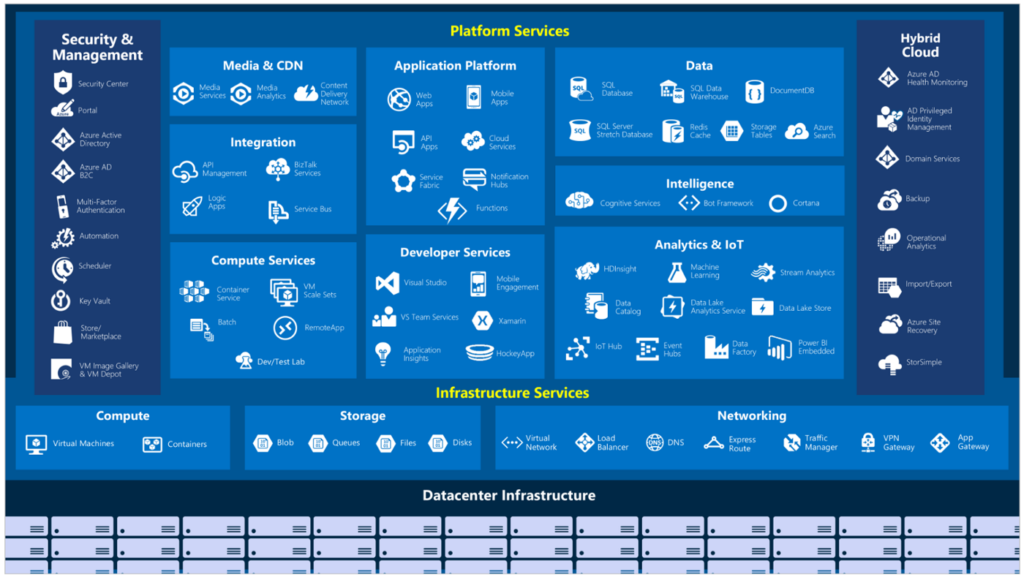
Core Azure Services
In this section, we will take a closer look at some of the core services offered by Azure and explore their key features and functionalities.
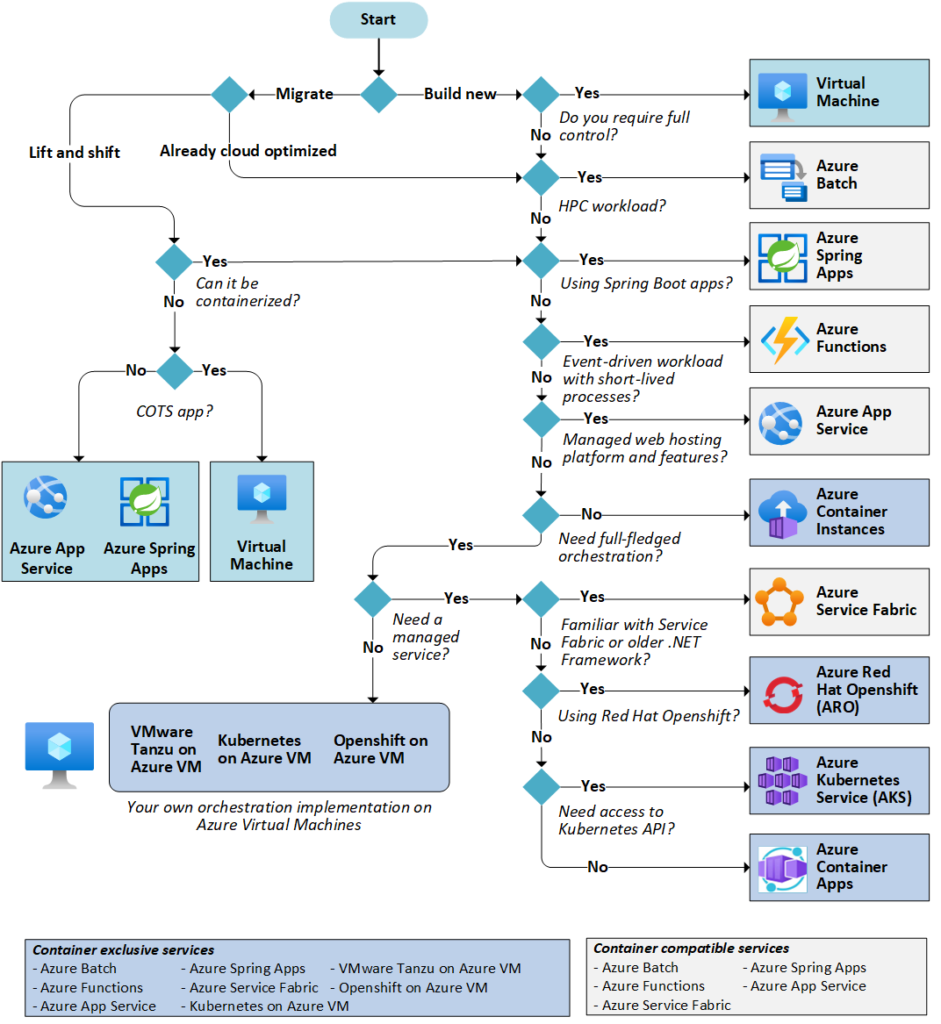
Virtual Machines (VMs)
Overview of VMs
Azure Virtual Machines (VMs) allow you to create and manage virtual machines in the cloud. A virtual machine is a software emulation of a physical computer that runs an operating system and applications, providing the same functionality as a physical machine.
With Azure VMs, you have complete control over the virtual machine instances. You can choose the operating system, configure the hardware specifications, and install the necessary software and applications. This flexibility allows you to create virtual machines that meet the specific requirements of your applications and workloads.
Creating and managing VMs in Azure
Creating a virtual machine in Azure is a straightforward process. You can choose from a wide range of pre-configured virtual machine images provided by Microsoft or bring your own custom image. Once the virtual machine is created, you can connect to it using remote desktop protocol (RDP) or secure shell (SSH).
Azure provides various management capabilities for virtual machines, including the ability to start, stop, restart, and resize virtual machines. You can also enable automatic scaling to ensure that your virtual machines can dynamically adjust their capacity based on demand.
Scaling and load balancing with VM Scale Sets
To handle high traffic and ensure high availability, you can use Azure Virtual Machine Scale Sets. A scale set allows you to create and manage a group of identical virtual machines that can automatically scale in or out based on demand. This ensures that your applications can handle increased traffic without experiencing performance bottlenecks.
Azure Virtual Machine Scale Sets also provide built-in load balancing capabilities. Incoming network traffic is distributed across the virtual machines in the scale set, ensuring that the workload is evenly distributed and that no single virtual machine is overwhelmed.
Integration with other Azure services
Azure VMs can be seamlessly integrated with other Azure services, allowing you to build highly scalable and robust solutions. For example, you can store your virtual machine data in Azure Storage for durability and high availability. You can also use Azure Virtual Network to securely connect your virtual machines to other resources in your Azure environment or to on-premises networks.
Furthermore, you can take advantage of Azure Autoscale to dynamically adjust the capacity of your virtual machines based on specific metrics or rules. This enables you to optimize resource utilization and minimize costs while ensuring that your applications can handle fluctuations in demand.
Overall, Azure Virtual Machines provide a flexible and powerful infrastructure-as-a-service (IaaS) solution that allows you to quickly deploy and manage virtual machines in the cloud.
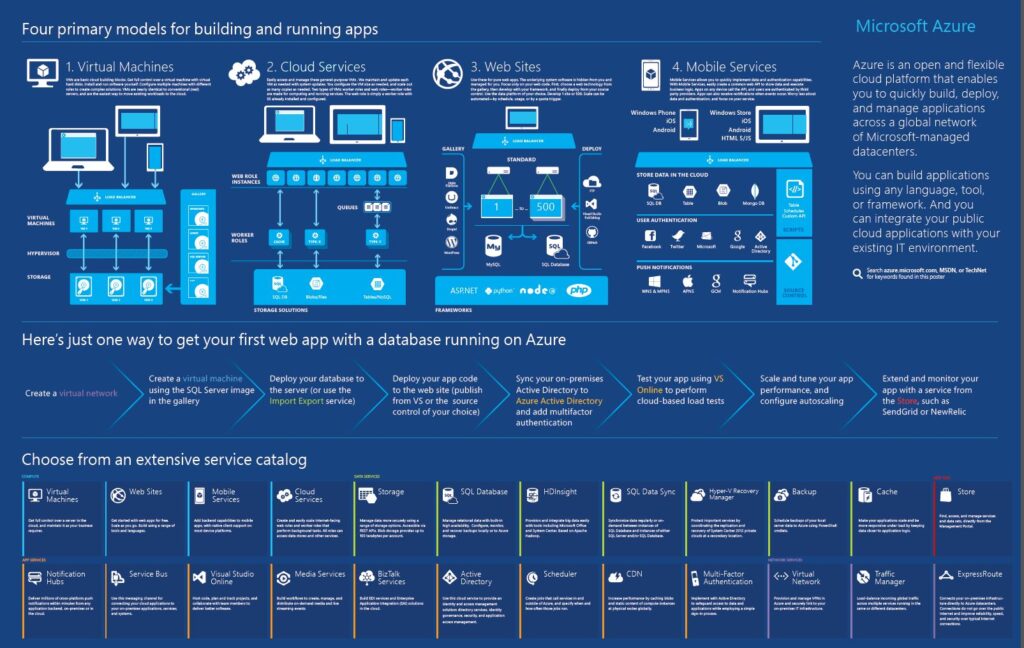
Azure App Service
Introduction to App Service
Azure App Service is a fully managed platform for building, deploying, and scaling web applications and APIs. It supports multiple programming languages, frameworks, and tools, making it easy to develop and host your applications in the cloud.
With App Service, you can focus on writing code and building features, while Azure takes care of the underlying infrastructure and platform management. This allows you to accelerate your development efforts and bring your applications to market faster.
Different types of App Service
Azure App Service provides different types of hosting options, depending on your application’s requirements:
-
Web Apps: Web Apps is the most common deployment option for building and hosting web applications. It supports popular programming languages like .NET, Java, Node.js, and Python, as well as frameworks such as ASP.NET and Django.
-
Mobile Apps: Mobile Apps is designed specifically for building and deploying mobile app backends. It provides features like offline sync, push notifications, and authentication, and supports mobile platforms such as iOS, Android, and Windows.
-
API Apps: API Apps enables you to build, host, and scale RESTful APIs in the cloud. It supports features like Swagger integration, authentication, and API management, making it easy to expose your APIs securely.
-
Logic Apps: Logic Apps is a serverless solution for building and orchestrating business workflows. It allows you to connect and automate processes across various services and systems, without writing complex code.
Publishing web applications to App Service
Publishing your web applications to Azure App Service is a straightforward process. You can choose from multiple deployment options, such as Git-based deployments, FTP deployments, or continuous integration and delivery pipelines using Azure Pipelines.
Azure App Service integrates seamlessly with popular development tools like Visual Studio and Visual Studio Code, allowing you to develop, debug, and publish your applications directly from your preferred development environment.
Monitoring and scaling App Service
Azure App Service provides a wide range of monitoring and diagnostics capabilities to help you gain insights into the performance and health of your applications. You can view real-time metrics and logs, set up alerts, and diagnose issues using tools like Application Insights and Azure Monitor.
In addition, App Service allows you to easily scale your applications to handle increased traffic. You can scale up or scale out your app service plan, depending on your needs. Scaling up involves increasing the resources allocated to your application, such as CPU and memory, while scaling out involves adding more instances of your application.
Azure also offers automatic scaling options, where the platform can scale your application dynamically based on predefined rules or metrics. This ensures that your applications can handle sudden spikes in traffic without experiencing performance degradation.
In summary, Azure App Service provides a fully managed platform for building and deploying web applications and APIs. With its wide range of features and deployment options, App Service allows you to focus on developing your applications while Azure handles the platform management.
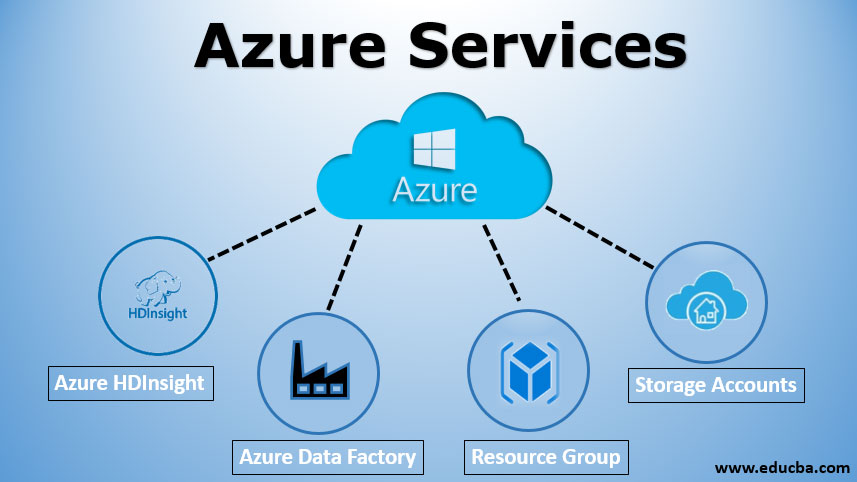
Azure Functions
Introduction to Functions
Azure Functions is a serverless computing service that allows you to run your code without worrying about the underlying infrastructure. With Azure Functions, you can write small, single-purpose functions that can be triggered by various events, such as changes to data in Azure Storage or incoming messages in a queue.
